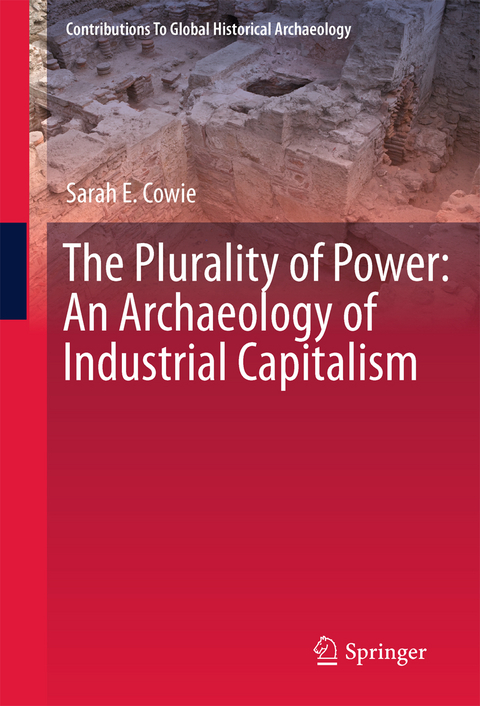
The Plurality of Power
Springer-Verlag New York Inc.
978-1-4614-2811-4 (ISBN)
The Plurality of Power: Industrial Capitalism and the Nineteenth-Century Company Town of Fayette, Michigan, explores the subtle distribution of power within American industrial capitalism through a case study of a company town. Issues surrounding power and agency are explored in regard to three heuristic categories of power. In the first category, the company imposed a system of structural, class-based power that is most visible in hierarchical differences in pay and housing, as well as consumer behavior. A second category addresses disciplinary activities surrounding health and the human body, as observed in the built environment, medical artifacts, disposal patterns of industrial waste, incidence of intestinal parasites, and unequal access to healthcare. The third ensemble of power relations is heterarcical and entwined with non-economic capital (social, symbolic, and cultural). Individuals and groups drew upon different forms of capital to bolster social status and express identity both within and apart from the corporate hierarchy. The goal in combining these diverse ideas is to explore the plurality of power relationships in past industrial contexts and to assert their relevance in the anthropology of capitalism.
The author received her Ph.D. in Anthropology from the University of Arizona in 2008, with a major in archaeology and a minor in sociocultural anthropology. Her M.S. in Industrial Archaeology is from Michigan Technological University. She also has over a decade of experience working in cultural resource management around the United States.
Chapter 1. the plurality of power in industrial capitalism: a case study of fayette, michigan.-chapter 2. working communities and the victorian-american company town.-chapter 3. critically reading power, landscapes, documents, and artifacts in industrialized society.-chapter 4. paternalism, resistance, and hegemony.-chapter 5. the class system.-chapter 6. bio-power: discipline, symbolic violence, and the privilege of hygiene.-chapter 7. social status and intersectional identities: consumer behavior, gender, and immigration.-chapter 8 symbolic, cultural, and social capital.-chapter 9. conclusion: power and industrial capitalism, past and present.
“The Plurality of Power adds to a growing corpus of literature centered on the archaeological investigation of capitalism. … her discussion of subtle forms of power is without a doubt the strongest contribution of her volume … . The Plurality of Power will motivate readers to think critically about the archives they pursue in constructing their narratives about the past and instruct them on how to glean the various power relationships from seemingly limited materials.” (Bradley D. Phillippi, Historical Archaeology, Vol. 52, 2018)
| Reihe/Serie | Contributions To Global Historical Archaeology |
|---|---|
| Zusatzinfo | X, 210 p. |
| Verlagsort | New York, NY |
| Sprache | englisch |
| Maße | 155 x 235 mm |
| Themenwelt | Geisteswissenschaften ► Archäologie |
| Geschichte ► Allgemeine Geschichte ► Altertum / Antike | |
| Medizin / Pharmazie ► Medizinische Fachgebiete ► Arbeits- / Sozial- / Umweltmedizin | |
| Studium ► Querschnittsbereiche ► Klinische Umweltmedizin | |
| Naturwissenschaften ► Geowissenschaften ► Geografie / Kartografie | |
| Sozialwissenschaften ► Ethnologie | |
| Sozialwissenschaften ► Soziologie | |
| Schlagworte | Industrial Revolution • Landscape Studies • pluralism • Stratification |
| ISBN-10 | 1-4614-2811-4 / 1461428114 |
| ISBN-13 | 978-1-4614-2811-4 / 9781461428114 |
| Zustand | Neuware |
| Haben Sie eine Frage zum Produkt? |
aus dem Bereich


